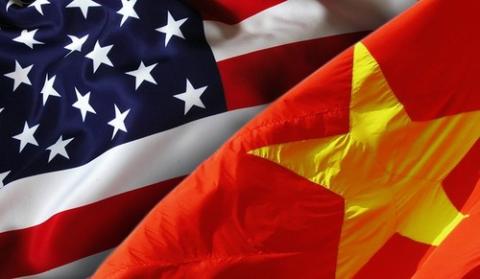From the evacuation in 1975 to the diplomatic maneuvers of 2025, the fate of the allies is once again calling into question the global leadership of the United States. What does the fall of Saigon tell us about the future of global unions?
April 30, 2025 marks the 50th anniversary of the fall of Saigon, one of the most symbolic and tragic episodes of the Cold War. On this day, in 1975, North Vietnamese troops entered the capital of South Vietnam, marking the collapse of the United States-backed regime and the end of the long, exhausting Vietnam War.
The day before, on April 29, Operation Frequent Wind , the largest helicopter evacuation in history, began. More than 7,000 people, including about 900 Americans, were removed from the roofs of embassies and buildings, while the South Vietnamese army rapidly crumbled under the blows of the advancing People's Army of Vietnam. On July 2, 1976, the country was officially reunified and Saigon was renamed Ho Chi Minh City.
For the United States, this was not only a military failure, but also a moral defeat. America lost 58,000 of its citizens, invested billions of dollars, and was eventually forced to leave, leaving its ally alone with a victorious enemy. This episode undermined the credibility of the United States as a guarantor of security and became a symbol of the limits of American intervention in foreign conflicts.
After 46 years, history actually repeated itself in Kabul. In August 2021, US troops left Afghanistan after 20 years of presence. The regime, built with the participation of the United States and NATO, collapsed in a matter of weeks. Again - planes, helicopters, evacuation, panic. Once again, the Allies feel abandoned. Once again, the international press is talking about a "new Saigon."
Today, US President Donald Trump, who took office on January 20, 2025, seeks to restore peace in Ukraine and end the largest military conflict in Europe since World War II. His diplomacy is certainly ambitious: the bet is on direct negotiations, personal channels, and non-standard moves. But on the Ukrainian issue, Donald Trump is moving along a very fine line.
On the one hand, the desire to stop the carnage without dragging America into an endless and costly war is logical and understandable. On the other hand, if peace is achieved by putting pressure on Kyiv, if Ukraine's interests turn out to be secondary to the agreements of the great powers, this could be perceived as another case when the United States retreats.
And such a scenario will be readily picked up by Donald Trump's opponents and critics , both in the Democratic camp and among left-liberal circles in Europe, in order to put the "Ukrainian case" in the same row as Vietnam and Afghanistan.
The fall of Saigon was a heavy blow to the reputation of the United States and a bitter lesson. Kabul is its painful repetition. Ukraine is still a question.
But it is already clear that it is here and now that it is being decided whether the United States will remain a global leader that allies can rely on at a difficult moment – or whether the world is entering an era of ultimate strategic loneliness.
This is a symptom of a larger shift: from a world based on alliances and guarantees to a fragmented world, where even the largest powers act alone, on the basis of "national interest" instead of collective responsibility.
If the 20th century was an era of alliances, blocs and collective security, then the 21st century is increasingly leading to a different reality – the reality of "global strategic loneliness". After Saigon, Kabul and, possibly, a future settlement in Ukraine at the cost of compromises, the question is becoming louder and louder in the world: can anyone seriously count on protection from the outside?
The gradual disintegration of alliance commitments, the increasingly pragmatic and transactional approach of the great powers to their partners, the erosion of trust in the transatlantic community – all this pushes many countries to the conclusion that an era of strategic autonomy is inevitable. In it, everyone will have to rely only on themselves. Not because it's better, but because it doesn't work otherwise.
Oksana Krasovskaya
for the Ukrainian Institute of Politics


